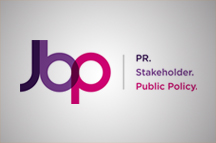 Housing and planning have never been more at the forefront of public consciousness.
Housing and planning have never been more at the forefront of public consciousness.
The issue is at the top of the political agenda and features in countless policy announcements and debates over the best way to deliver new schemes, where they should be and who should benefit.
Bristol and its neighbouring local authorities are not alone in facing down the huge challenge of accommodating the development needed, in areas where it will be accepted. Its recently launched Joint Spatial Plan and Transport Study are bold attempts to lead local conversations to shape a long-term strategy for housing and infrastructure provision.
This creates opportunities and challenges for development and planning professionals that smart, focused engagement and targeted communications can address. Some challenges, in particular the need to listen and respond effectively, are ever-present and evolving. Others are new, leaving organisations struggling to keep up with the pace of change.
Here are five things we’d highlight from our experience that every development and planning professional should pay attention to.
#1. Listen and learn:
For organisations to genuinely respond to their audiences, they must first excel at listening. Tuning in to the right conversations, whether that be face-to-face or online, enables organisations to gain a sense of emerging issues early before engaging. Social listening platforms provide the capability of systematically collecting online conversations about a specific phrase, word, or brand. This can be done on a local level if required and can provide valuable insight that can shape early engagement activity.
#2. Reach out to your influencers:
Key stakeholders have always been important to local consultations, and it’s critical to understand what they think before you engage. But new patterns of influence are emerging beyond our traditional offline stakeholder groups. These could be anyone with a community or network, including local bloggers, people with a social media presence or YouTube account. Take steps to ensure you have these groups covered when mapping your stakeholders and follow conversations they are involved in.
#3. Plug into the political conversation:
Understanding the evolving policy landscape, on a local and national level, is essential for many schemes. Having a detailed knowledge of local planning processes and the direction or travel on the national policy agenda can ensure that proposals meet your delivery ambitions.
#4. ‘Get’ the media and digital landscape:
What media and digital platforms are most useful to your communications activity? What’s their position on development-related issues? Will your audiences be reached by these channels, and how should you work with them to ensure that they understand your aims? Having answers to these questions will play an important part in your engagement during the campaign.
#5. Be trustful:
Openness and honesty are more important now than ever. Don’t take our word for it: look at the many examples of public figures who have come unstuck as a result of overpromising and under-delivering. Decline in trust in our political and business leaders is at an all-time low in the UK, and people are quick to call organisations out if they think they are being misled. Don’t become a member of this list.












